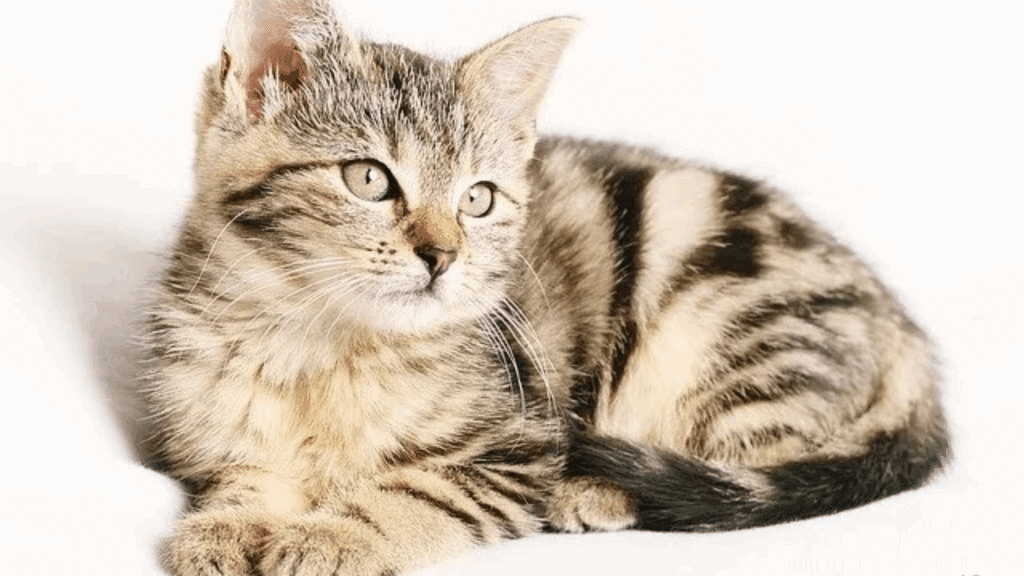Cats have been our companions for thousands of years, yet they remain delightfully mysterious.
If you are a first-time cat parent or you’ve shared your home with felines for decades, there’s always something new to learn about these fascinating creatures.
From understanding their quirky behaviors to ensuring their health and happiness, pet owners constantly seek reliable information. That’s precisely what we’re here for.
This comprehensive blog addresses the most frequently asked questions about cats that veterinarians, pet stores, and online forums encounter daily.
Frequently Asked Questions About Cats

Cat owners everywhere share similar concerns and curiosities about their feline friends. From health and behavior to diet and grooming, specific questions repeatedly arise in veterinary offices and online forums.
Here are the most common questions about cats that every cat parent should know the answers to.
1. Why does my cat stare at me without blinking?
Your cat may be observing you out of curiosity, affection, or even a desire to assert its dominance. A steady gaze, especially if relaxed, can also indicate trust. If the stare feels intense, it may be your cat seeking interaction or food.
2. What does it mean when my cat follows me everywhere?
Cats often follow people they trust or feel a strong bond with. This behavior may signal affection, curiosity, or a desire for food, play, or attention. It’s also a sign your cat feels secure in your presence.
3. Why does my cat suddenly bite during petting?
This is called “petting-induced aggression.” Some cats become overstimulated or overly sensitive to touch over time. Biting may signal they’re overwhelmed or have reached their limit, even if they were enjoying it moments before.
4. Is it normal for my cat to run around wildly at night?
Yes, this is known as the “zoomies.” Cats are crepuscular, meaning they’re most active at dawn and dusk. They may release pent-up energy by sprinting, especially if they’ve napped all day or lack stimulation.
5. Why does my cat hide when guests arrive?
Cats are territorial and sensitive to unfamiliar scents and sounds. Hiding when guests arrive is a natural response to stress or fear. Over time, some cats may become accustomed to visitors, while others prefer to be left alone.
6. What causes a cat to hiss or growl for no reason?
Though it may seem unprovoked, hissing or growling often stems from fear, pain, or stress. Sudden noises, unfamiliar pets, or even changes in routine can trigger this. Monitor your cat’s body language and surroundings closely.
7. What’s the reason behind excessive meowing?
Excessive meowing may indicate hunger, attention-seeking behavior, loneliness, or underlying medical issues. Some breeds, like Siamese, are naturally more vocal. If the behavior is new or unusual, it’s advisable to consult your veterinarian to rule out any underlying illness.
8. How can I tell if my cat is healthy?
A healthy cat has bright eyes, a shiny coat, consistent eating habits, normal litter box behavior, and active playfulness. Regular grooming and a curious nature are also good signs. Any sudden behavior changes may indicate an underlying issue.
9. What vaccinations does my cat need?
Core vaccines include rabies, feline distemper (FVRCP), and feline leukemia (FeLV). Indoor cats typically require fewer vaccinations, but annual boosters and regular check-ups are still essential. Consult your vet for a tailored vaccination schedule based on lifestyle.
10. How do I know if my cat has worms or parasites?
Look for signs such as vomiting, weight loss, a bloated belly, diarrhea, or visible worms in the stool. Cats with parasites may also overgroom or exhibit excessive grooming behavior, also known as scooting. A vet can confirm with a fecal test and prescribe deworming treatment.
11. What are the signs of dental problems in cats?
Bad breath, drooling, pawing at the mouth, yellow teeth, or difficulty eating are common signs of this condition. Dental issues like gingivitis or tooth decay can cause pain and loss of appetite. Annual dental checks and cleaning help prevent this.
12. Why is my cat suddenly losing weight or hair?
Sudden weight or hair loss can signal stress, allergies, parasites, thyroid issues, or serious illnesses like diabetes or cancer. Monitor eating habits and behavior changes closely. It’s best to schedule a vet visit for evaluation.
13. How often should I deworm my cat?
Kittens require deworming every 2–3 weeks until they are 12 weeks old, then monthly until they are 6 months old. Adult cats should be dewormed every 3 months, or as recommended by your vet, especially if they go outdoors or hunt.
14. Can indoor cats still get fleas or ticks?
Yes, indoor cats can contract fleas or ticks from other pets, visitors, or even humans who track them inside. Use year-round preventatives recommended by your vet and check your cat regularly, especially after you’ve been outdoors.
15. How often should I clean my cat’s litter box?
Scoop waste at least once daily to prevent odors and health issues. Clean the entire litter box with soap and water on a weekly basis. Cats prefer cleanliness, and neglecting this can lead to litter aversion or accidents.
16. Can I bathe my cat, and how often?
Most cats groom themselves and don’t need frequent baths. Only bathe them if they’re visibly dirty, have fleas, or have medical conditions. Use a cat-safe shampoo and wash your cat once every few months or as directed by your veterinarian.
17. What’s the best diet for a growing kitten vs. an adult cat?
Kittens require high-protein, calorie-dense food for growth, which is typically fed three to four times daily. Adult cats require balanced, well-maintained diets with controlled portions. Always choose age-appropriate formulas and consult your veterinarian for a tailored feeding plan.
18. Is it better to free-feed or schedule meals for cats?
Scheduled meals are better for portion control, monitoring appetite, and preventing obesity. Free-feeding can lead to overeating, especially in less active cats. Timed feeding also helps develop a healthy routine and strengthens your bond.
19. How do I keep my indoor cat mentally stimulated?
Offer interactive toys, puzzle feeders, cat trees, and window perches. Rotate toys weekly and dedicate time for daily play sessions. Cats thrive on routine, variety, and opportunities to mimic natural hunting behaviors indoors.
20. Should I trim my cat’s nails or leave them to a groomer?
You can safely trim your cat’s nails at home with practice and proper tools. However, if your cat resists or you’re unsure, a groomer or vet technician can do it quickly and without stress.
21. Do cats need regular vet visits even if they seem fine?
Yes, yearly checkups are essential to detect hidden issues early. Cats often mask pain or illness. Regular exams ensure vaccinations are up to date and help track changes in weight, behavior, or dental health.
22. Why does my cat purr or knead?
Purring and kneading are signs of contentment, comfort, and trust. Cats knead as a leftover behavior from kittenhood, while purring may also soothe them during stress, illness, or pain; therefore, always observe the context carefully.
23. Why does my cat headbutt or rub against me?
Headbutting and rubbing are affectionate behaviors. Cats have scent glands on their faces and rub against you to mark you as “safe.” It’s their way of bonding, showing trust, and creating familiar, comforting scents around you.
24. Why does my cat eat grass?
Cats may eat grass to aid digestion, help with hairball expulsion, or because they enjoy the texture. While not fully understood, it’s generally safe in moderation. Avoid chemically treated grass and consult a vet if vomiting persists.
25. Why do cats hate water?
Most cats dislike water due to their unique fur texture, which takes a long time to dry. It feels heavy and uncomfortable. Additionally, cats are creatures of habit, and unexpected sensations often trigger avoidance or fear.
26. Why does my cat sleep so much?
Cats are naturally inclined to sleep 12–16 hours a day, conserving energy for hunting—even if they’re indoor pets. Senior cats and kittens may sleep more. It’s perfectly normal unless paired with lethargy or other unusual behaviors.
27. Why do cats chirp or chatter at birds?
Chirping is an instinctive hunting sound, often triggered by frustration or excitement when spotting prey. Some experts believe it mimics bird calls or serves as an outlet for pent-up predatory energy when they can’t chase their target.
28. When and how to give medications?
Follow vet instructions precisely and use a pill pocket, syringe, or treat method. Timing depends on the type of medication; some require food, while others don’t. Never self-medicate; incorrect use can harm your cat’s health severely.
29. How to handle hairballs?
Brush your cat regularly to reduce the risk of swallowed fur, provide fiber-rich food or hairball control treats, and encourage hydration. Occasional hairballs are normal, but frequent vomiting or constipation may indicate a deeper issue that requires veterinary attention.
30. Common age-related illnesses.
Senior cats often face arthritis, hyperthyroidism, kidney disease, and dental problems. Watch for changes in weight, increased thirst, or altered behavior. Regular vet visits, blood tests, and early detection can help manage these conditions and improve lifespan.
31. Longevity and life stages of cats.
Cats typically live 12–18 years, with some reaching 20 years or more. Life stages include kitten (0–1 years), young adult (1–6 years), mature adult (7–10 years), and senior (11+ years). Each stage requires tailored nutrition, healthcare, and environmental enrichment to maintain optimal health.
32. Can I use human products (shampoo, brushes) on my cat?
No. Human shampoo can irritate a cat’s skin and disturb their pH balance. Use only cat-specific grooming tools and hygiene products designed for cats. For brushes, opt for gentle ones specifically designed for feline coats to prevent skin damage.
33. How to control shedding?
Brush your cat regularly with the right grooming tool for its coat type. Provide proper hydration and a balanced diet rich in omega fatty acids. Seasonal shedding is normal, but excessive fur loss may be a sign of underlying health issues.
34. Spaying/neutering frequency or timing.
Cats are typically spayed or neutered at 5–6 months of age, before their first heat cycle. Early sterilization helps prevent unwanted litters, certain cancers, and behavior problems. Always consult your vet for timing based on your cat’s health.
35. Travel tips and cat-proofing the home.
Use a sturdy carrier, pack familiar items, and take breaks during long travel. At home, secure cords, remove toxic plants, and use screens on windows to prevent accidents. Keep cleaning agents locked away and offer vertical spaces for safe exploration.
36. How to help with hairballs or hair accumulation?
Increase brushing frequency, switch to hairball-control diets, and offer high-fiber treats. Hydration is key to smooth digestion. If hairballs are chronic or cause vomiting, a vet may recommend a safe lubricant or digestive aid.
Tips for Building a Better Cat-Human Bond
Building a stronger relationship with your cat doesn’t require expensive toys or complicated training. It’s all about understanding what makes your feline tick and showing up consistently in ways that matter to them.
Small, intentional actions can change your bond from casual coexistence to genuine companionship.
- Consistent feeding schedule: Feed your cat at the exact times each day, as cats thrive on predictability.
- Regular play sessions: Create interactive playtime before meals when their hunting instincts are strongest.
- Bedtime routine: Establish quiet time together with gentle brushing or calm bonding.
- Patient interactions: Cats tend to remember negative experiences more readily, so patience helps prevent setbacks to trust.
- Personal space respect: Let them come to you rather than forcing interaction.
- Gentle handling: Regular soft touches reduce stress hormones for both of you.
- Voice communication: Talk regularly in calm, soft tones to strengthen your bond.
- Cozy spaces: Create observation spots where your cat can watch you safely.
The Bottom Line
Understanding your feline companion becomes easier when you have reliable answers to everyday concerns.
These common questions about cats cover everything from basic care to behavioral quirks, giving you the confidence to provide the best possible life for your pet.
Every cat is unique. While these guidelines provide a solid starting point, pay attention to your individual cat’s preferences and needs.
Building that special bond takes time, but the reward is a loving relationship that enriches both your lives.
















